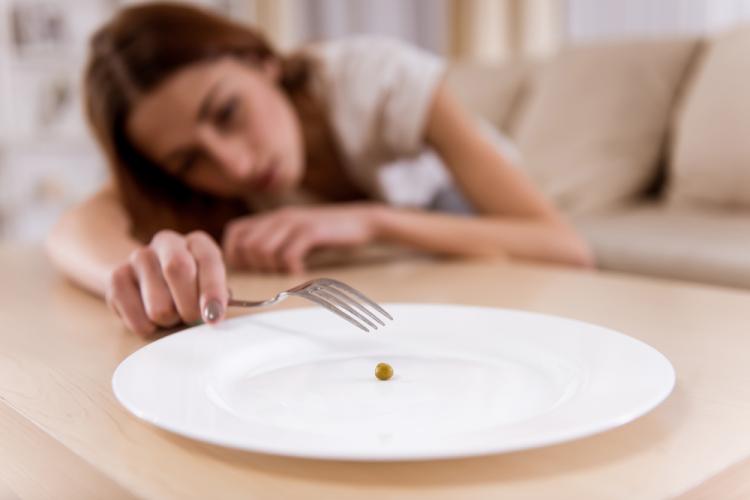We are very often conscious of not defining someone as their disorder. For example someone diagnosed with ADHD is a person with a developmental disorder, they are not the disorder.
Eating disorders, though, are considered differently by society. We speak of an Anorexic or Bulimic. It is almost as though it defines the person.

Eating disorders or disordered eating as I prefer to use may arise for a variety of reasons; reaction to being a bit overweight and teased so a diet starts that gets out of hand; an overbearing parent means the only sense of autonomy or control is gained through controlling what enters his or her body; rejection of growing up and transforming from child to woman; feeling under societal pressure to be unrealistically thin; wanting to disappear- literally wasting away; hating self and restricting food as self punishment; a method of coping with stress… and the list goes on.
What strikes me is that although the onset of disordered eating may vary the relationship that an individual may develop with the ‘illness’ or ‘dis-ease ‘have similarities.
You notice that although I don’t always favour the medical model approach as a sole causative explanation, in this case the ensuing biological changes that take place due to lack of nutrition affect chemical, mood and perceptual disturbances should not be overlooked and describe a ‘dis-ease’ with self.
Does the disordered eating then become so powerful that it has an almost protective hold over a person that the thought of giving it up is absolutely terrifying? People who enjoy a healthy appetite and good meals and the occasional treat might struggle to grasp how depriving oneself of food and eating measly often tasteless meals, might have any reward. It defies our natural instinctual drive of hunger reduction after all.
Wherein lies the reward- some suggestions from sufferers include that if they can control their food intake, they feel reassured and suffer less stress. It gives an internal focus which forces emotions to take a backseat. This is of course the likely cause in the first place but gets pushed out of conscious awareness and the busy task of calorie counting and working out excuses not to have a cake or chocolate at work take over from the painful emotion.
I feel this inner secret life is a kind of self –fulfilling relationship with self, which will be protected at all costs. It provides some inner strength and sanctum. There is a sense of knowing that the sandwich everyone thought you ate and enjoyed is stuffed in your pocket. It translates as power. This is where the addictive cycle is hard to break. This game and competing with self must mean that the stakes keep changing and the goal is fewer and fewer calories and the weight falling off reinforces this, giving a sense of achievement. It consumes the psyche and again keeps those dangerous emotions out of the way while a person plots and conspires to avoid social functions, become more reclusive and devote more time to the relationship with ‘disordered eating’.
The counselor has a tricky task of trying to help a person to try and uncover the emotional trigger and reason for turning to disordered eating as a coping method. This process is often disturbing and may mean the client clings more keenly to the protective predictable eating disorder for comfort. It has after all seen them through thick and thin and without it, it can feel like the wheels have come off. As with many addictive behaviours I feel it is important to foster more healthy coping methods to facilitate the emotional journey. This might be incorporating guided visualization, meditation, any activity that helps an individual to relax, planting a garden, nurturing an animal, painting or expressing through words, keeping a journal, music, creating a new safe place away from the cloak of the disordered eating practice.
Helping a client to see that what they thought was their friend is actually their foe and making sure that other healthy supports are put in place simultaneously are essential.
So is it possible to be in love with your eating disorder- YES I believe so. This is not to say that this dysfunctional relationship cannot be challenged and exposed for what it is however! It isn’t based on a healthy love but a system of reward and a sense of power that a person who doesn’t value themselves enough gets hooked on.
The good news is that it is possible, with the right support and the courage to change to challenge and break the addictive cycle for good.

